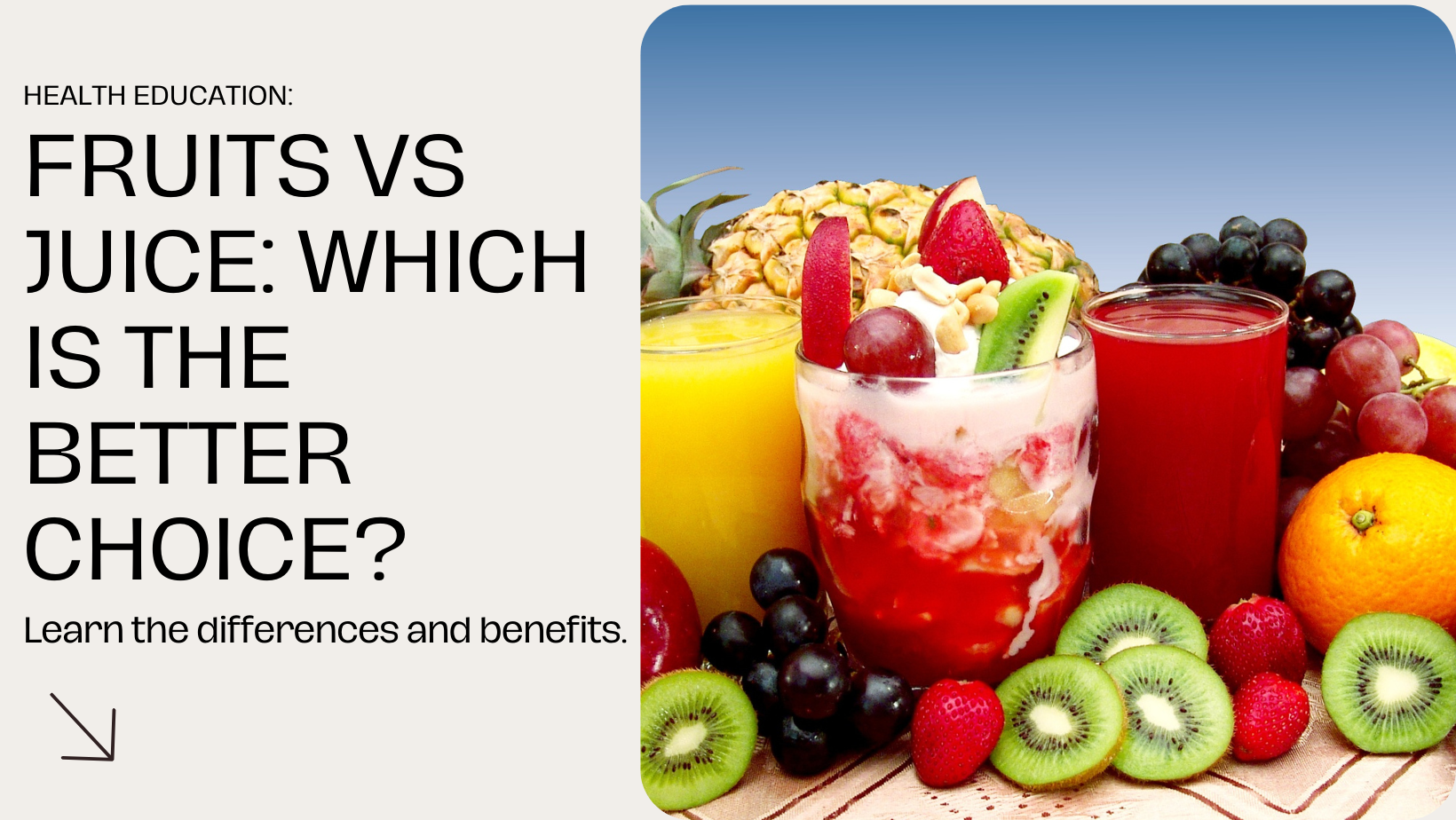Fruits vs. Juice: Understanding the Differences and Benefits
Fruits vs. Juice: Understanding the Differences and Benefits

Introduction
The argument over whether it’s healthier to eat fruits or drink fruit juice has garnered more attention in the health and wellness sector in recent years. Knowing the specific advantages and disadvantages of each type of fruit consumption can help you make more educated dietary decisions. Here at Fitway24 we will explore the differences between eating fruits and consuming them as juice in this extensive guide, as well as their nutritional value, potential health risks, and general advantages.
Nutritional Differences
Whole Fruits
Consuming whole fruits is a great way to get important vitamins, minerals, and dietary fiber. Fruit fiber helps with blood sugar regulation, healthy weight maintenance, and digestion. Furthermore, whole fruits are a great source of phytonutrients and antioxidants that help fight inflammation and free radical damage.
Fruits Juice
On the other hand, fruit juice frequently has less fiber than whole fruits and a higher sugar content. Although it can be a good source of vitamins and minerals, the juice’s natural sugars may cause blood sugar levels to spike more quickly because it lacks fiber.
Health Benefits
- Weight Management: Whole fruits’ fiber helps you feel fuller and lessens the chance that you’ll overeat.
- Digestive Health: Fiber facilitates bowel movement and keeps constipation at bay.
- Prevention of Chronic Diseases: Fruits contain antioxidants that lower the chance of developing chronic illnesses like cancer and heart disease.
Fruit Juice
- Hydration: Fruit juices offer a revitalizing approach to maintain hydration.
- Convenience: Juices are simple to drink, particularly for people who have trouble finishing solid meals.
- Nutrient Absorption: Juicing may occasionally aid in improving the absorption of particular nutrients.
Related Article: When is The Best to Eat Fruit to Get The Greatest Benefits
Drawbacks
Whole Fruits
- Convenience: Eating whole fruits can be more difficult, particularly when rushing.
- Seasonal Availability: Certain fruits aren’t always in season.
Fruit Juice
- Sugar Content: Too much sugar can be bad for your health, especially if you have diabetes.
- Nutrient Loss: Juicing may cause you to lose some fiber and nutrients.
Conclusion
In conclusion, while there are benefits to both eating whole fruits and consuming fruit juice, whole fruits are usually regarded as the healthier choice because of their higher fiber content and lower sugar content. If you use fruit juices sensibly, they can still be a healthy component of your diet. You can choose your fruit intake more wisely if you are aware of these distinctions.
FAQs
- Is it preferable to consume fruits whole or as juice?
Because whole fruits contain more fiber and less sugar, they are generally healthier to eat. Fruit juices, however, have some advantages if taken in moderation. - Is fruit juice appropriate to include in a healthy diet?
A: Fruit juice can be included in a healthy diet as long as it is consumed in moderation and ideally without added sugars. - Do fruit juices offer the same amount of nutrients as one another?
A: No, depending on the fruit variety and whether the juice is processed or fresh, the nutritional value varies.
Thank you for the good writeup It in fact was a amusement account it Look advanced to far added agreeable from you However how could we communicate
This platform is phenomenal. The magnificent data uncovers the proprietor’s excitement. I’m shocked and expect additional such astonishing sections.
I loved as much as you will receive carried out right here The sketch is tasteful your authored subject matter stylish nonetheless you command get got an edginess over that you wish be delivering the following unwell unquestionably come further formerly again as exactly the same nearly very often inside case you shield this hike
[…] Related article: Fruits vs. Juice: Understanding the Differences and Benefits […]